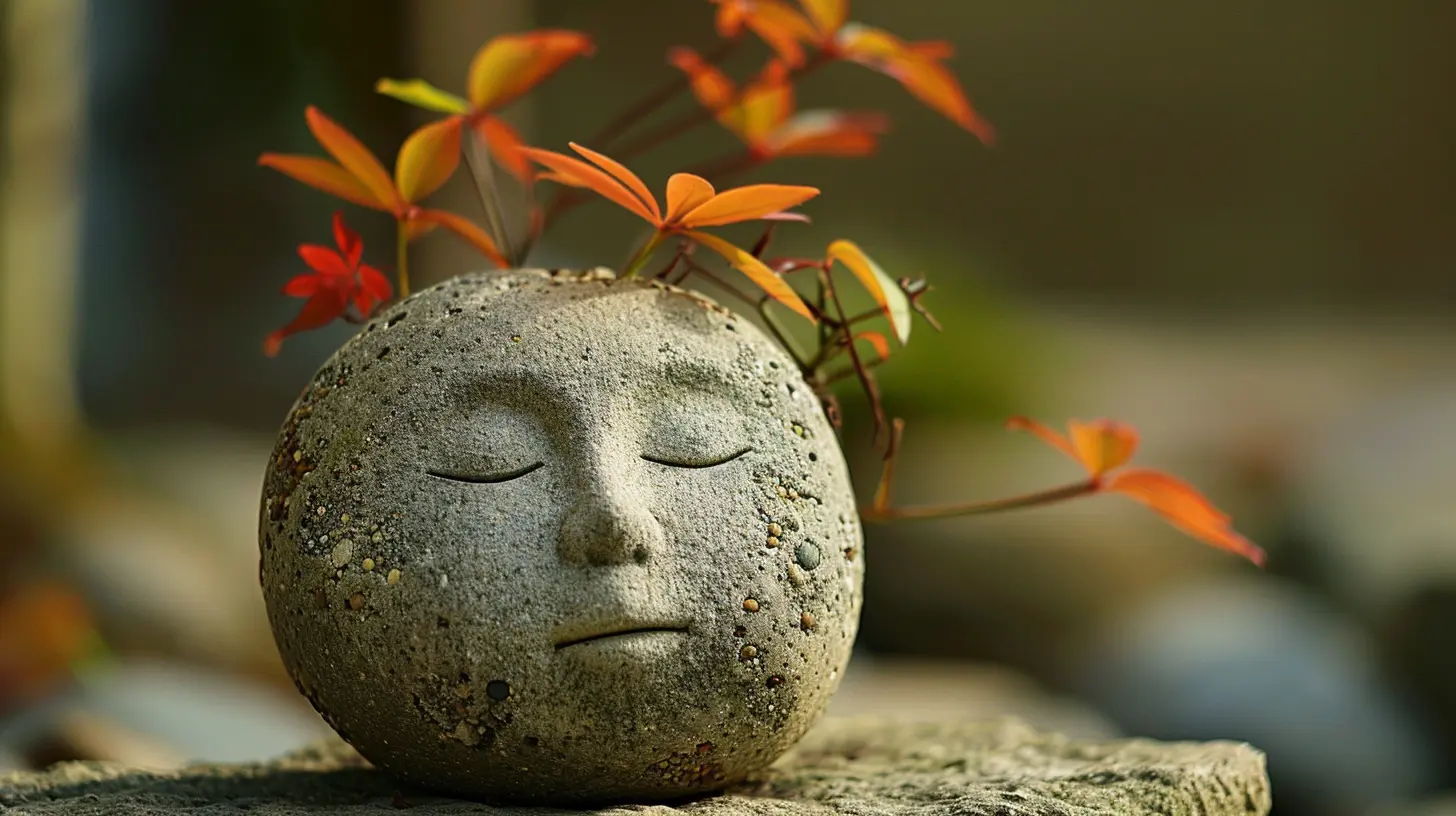The Importance of Rest and Relaxation for Mental Balance
12 August 2025
Let’s face it—life’s a chaotic mess sometimes. Between work deadlines, family responsibilities, and the never-ending scrolling on social media, it feels like there’s no time to just breathe. But here’s the real tea: if you don’t make time to rest and recharge, your mind is going to stage a full-blown revolt.
Rest and relaxation aren’t just luxuries—they’re essential for mental balance. Think of your brain like your smartphone. If you never plug it in, it’s only a matter of time before it shuts down. So, let’s dive right into why you need to stop glorifying hustle culture and start embracing the magic of slowing down.

Why Rest and Relaxation Are Non-Negotiable
We live in a world that celebrates busyness like it’s some kind of badge of honor. “I’m so busy” has become the default response when someone asks how we’re doing. But let me tell you—overworking yourself to exhaustion isn’t a flex. It’s a fast track to burnout, anxiety, and an all-around miserable existence.Rest and relaxation are your brain’s way of resetting itself. Without them, your mental health takes a nosedive. You become irritable, forgetful, and about as fun to be around as a grumpy cat who missed breakfast. So, let's break it down:

The Science Behind Resting Your Mind
Your brain isn’t a machine—it’s a complex, ever-working organ that needs downtime to function properly. Here’s what happens when you actually let yourself rest:1. Reduces Stress and Anxiety
Stress is sneaky. It creeps up on you, builds up over time, and before you know it, you're running on fumes. When you rest, your body lowers cortisol (the stress hormone), making you feel human again.Ever notice how everything seems worse when you're exhausted? That’s because fatigue amplifies stress. Taking time to rest helps you regain perspective and deal with challenges more effectively.
2. Improves Focus and Productivity
You might think that pushing through exhaustion makes you more productive, but spoiler alert—it doesn’t. Your brain works like a muscle, and when overused, it gets sluggish. By taking breaks, you actually improve focus and efficiency.Think of your mind like a car engine. If you run it non-stop, it'll overheat. But if you let it cool down, it runs smoothly. Makes sense, right?
3. Boosts Creativity and Problem-Solving
Ever had a brilliant idea in the shower? That's because your brain thrives when it's relaxed. When you step away from constant thinking, your subconscious gets to work, making unexpected connections and coming up with creative solutions.So if you’re stuck on a problem, don’t force it. Walk away, take a nap, or do something completely unrelated. The answer might just pop into your head when you least expect it.
4. Enhances Emotional Well-Being
When you're well-rested, you're a lot less likely to snap at your coworker for breathing too loudly. Sleep and relaxation regulate emotions, helping you stay patient, understanding, and generally more pleasant to be around.If you've ever felt emotionally drained after a long, exhausting week, that's your brain telling you it needs a break. Listen to it.

How to Incorporate Rest and Relaxation Into Your Life
Okay, so we’ve established that rest and relaxation are crucial. But how do you actually make it happen in a world that glorifies doing the most? Here are some realistic ways to recharge without feeling guilty about it.1. Prioritize Sleep Like Your Life Depends on It (Because It Does)
Skipping sleep isn't a flex—it's self-sabotage. Adults need 7-9 hours of quality sleep to function properly. Sleep isn't just about resting your body; it's about giving your brain the time it needs to reset and process everything you've experienced.If you struggle with sleep, try:
- Creating a bedtime routine (yes, adults need one too).
- Avoiding screens at least an hour before bed.
- Keeping your bedroom cool, dark, and quiet.
2. Take Breaks Before You Actually Need Them
Don’t wait until you're barely holding it together to take a break. Schedule regular pauses throughout your day to reset. It could be as simple as stepping outside for fresh air, stretching, or making a cup of tea.The Pomodoro Technique (working in 25-minute intervals with 5-minute breaks) is a game-changer for maintaining focus and preventing burnout.
3. Embrace the Art of Doing Nothing
When was the last time you just existed without feeling like you should be doing something? Society has tricked us into thinking that being busy equals being successful. But true success includes knowing when to pause.Set aside time to do absolutely nothing—no phone, no work, no guilt. Just sit, breathe, and let your mind wander. Trust me, it’s not a waste of time. It’s a mental reset.
4. Move Your Body, But Make It Enjoyable
Exercise isn’t just about getting physically fit—it’s an incredible way to reset your mind. But here’s the thing: you don’t have to suffer through workouts you hate.Find something that actually brings you joy, whether it’s dancing in your living room, taking a yoga class, or going for a walk. Movement should be a form of self-care, not punishment.
5. Set Boundaries Like a Pro
If you're constantly saying yes to everything, you're basically handing over your mental peace on a silver platter. Learn to say no without guilt.Your time and energy are valuable. Protect them. Schedule rest like it's a non-negotiable appointment (because it is). You don't owe anyone 24/7 availability.

The Guilt-Free Guide to Relaxing Without Feeling “Lazy”
Raise your hand if you've ever felt guilty for resting. 🙋♀️ Society has conditioned us to believe that taking time for ourselves is selfish or lazy, but that’s a massive lie.Rest isn't wasted time. It’s a necessity. You can’t pour from an empty cup, and the more you neglect yourself, the worse you’ll feel. Give yourself permission to rest—without guilt, without justification.
The people who truly succeed in life aren’t the ones who never stop working—they’re the ones who know when to pause, recharge, and come back stronger.
Final Thoughts
Your mind isn't an unlimited resource. If you keep pushing without breaks, you're setting yourself up for exhaustion, burnout, and frustration. Rest and relaxation aren’t optional; they’re the foundation of a healthy, balanced life.So, take that nap. Cancel that unnecessary meeting. Spend an afternoon doing nothing. Your mental well-being deserves it. And guess what? The world will keep spinning even if you take a break.
Now go ahead, unplug for a while, and give your mind the reset it desperately needs.
all images in this post were generated using AI tools
Category:
Mental WellnessAuthor:

Angelo McGillivray
Discussion
rate this article
1 comments
Serenity McLemore
This article beautifully highlights how essential rest and relaxation are for our mental well-being. Prioritizing downtime is crucial for maintaining balance and nurturing our overall health.
August 27, 2025 at 3:27 AM

Angelo McGillivray
Thank you for your thoughtful comment! I'm glad you found the article resonant and important for our mental well-being. Prioritizing rest is indeed vital for maintaining balance.


